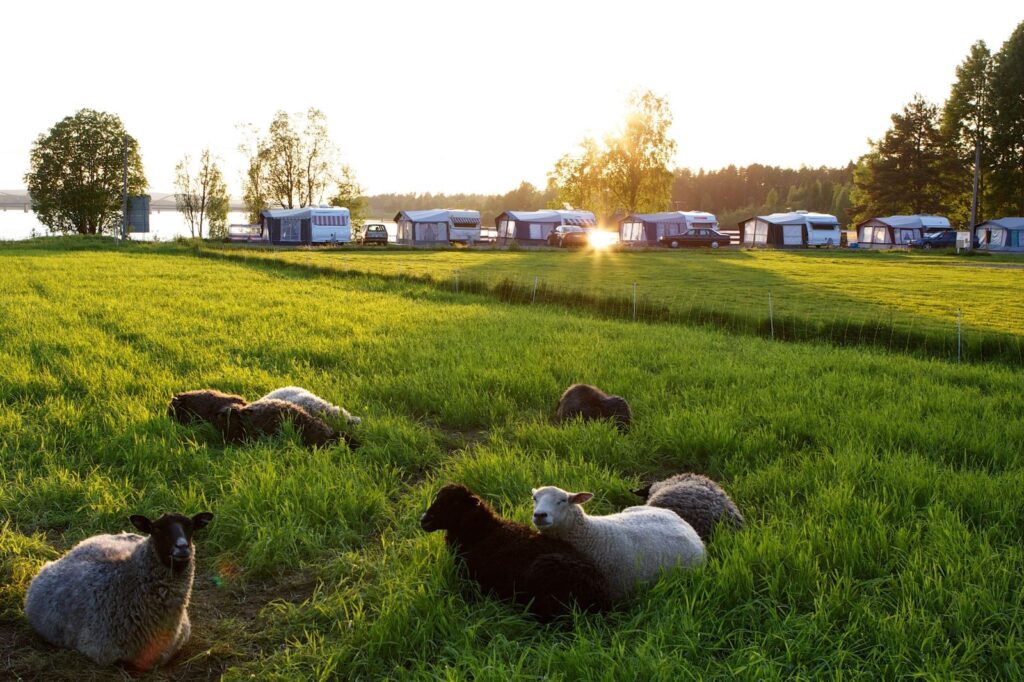Agritourism projects could face lengthy delays due to failing UK planning system
11th April 2023
Farmers in England could miss out on much-needed revenue from agritourism this year due to the UK’s planning system failing to deliver decisions on time, according to outdoor accommodation specialist Pitchup.com.
The most recent national statistics figures show that the number of standard minor commercial planning decisions – including those for agritourism projects – fell by more than 50% between 2017 and 2022.
Yet, the number of decisions made by local planning authorities after the statutory eight-week limit almost doubled, leaving hundreds of applicants across the country frustrated.
Along with a significant delay in the government’s consultation into permanently extending Permitted Development Rights (PDR) for camping, this means the launch of diversification projects nationwide is being severely hampered.
In 2017, a total of 6,710 standard minor commercial planning decisions were submitted in England, out of which 824 (12.3%) were not decided on within the statutory eight-week period, the figures revealed.
However, by 2022, the number of planning decisions plummeted to just 3,205, with the proportion of those failing to meet the eight-week deadline soaring to 23.1% (739). Dan Yates, founder of Pitchup.com, said the figures are a ‘kick in the teeth’ for farmers hoping to earn vital revenue from agritourism this year.
“Between 2017 and 2022, the number of standard minor commercial planning decisions more than halved, yet the proportion of those that failed to be decided upon within the statutory time limit almost doubled.
“Whereas some of this is due to the more complex applications being submitted in a different way, the situation overall is absurd,” he remarked.
“You’d have thought with far fewer decisions overall, planning authorities would be able to hit the deadline on all but the most complex of applications. But the figures show this isn’t the case at all, in fact, their performance has sunk to a five-year low which has a huge knock-on effect for farmers trying to set up diversification projects.”
While many farmers apply for full planning permission to set up permanent agritourism projects, others rely on PDR to run seasonal caravan and camping sites. This enables farmers and landowners to run a pop-up campsite for 28 days per year without applying for extra planning permission, however, the cost of hiring facilities often makes this option unprofitable.
Earlier this year, the government launched a consultation into permanently extending PDR to 60 days per year for up to 30 tents, but unfortunately, the outcome will come too late for farmers struggling to make a living this year, Mr Yates said.
“(…) With the consultation likely to take months, the measly 28-day PDR looks set to remain in place for the holiday season, despite bookings levels 40% up on last year,” he noted.
“This is a shame because PDR is often the way by which farmers get into diversification projects. Once they’re successful, they then apply for full planning permission.
“But with the planning system broken too, any application for an agritourism project potentially faces lengthy delays. Extending PDR could have provided a sticking plaster for the situation, enabling farmers to operate a pop-up camping site throughout the summer while waiting for full planning permission to be granted.”
However, this won’t be available due to the delay in the consultation, Mr Yates added, causing many farmers to write off the holiday season this year as an opportunity to earn an extra income stream from diversification.
During the pandemic, the government temporarily extended PDR to 56 days to help the rural economy recover from the impact of successive lockdowns, as well as provide extra capacity for British holidaymakers unable to travel abroad.
Despite the move injecting an additional £25m into the rural economy in 2021, PDR returned to 28 days at the end of that year.

